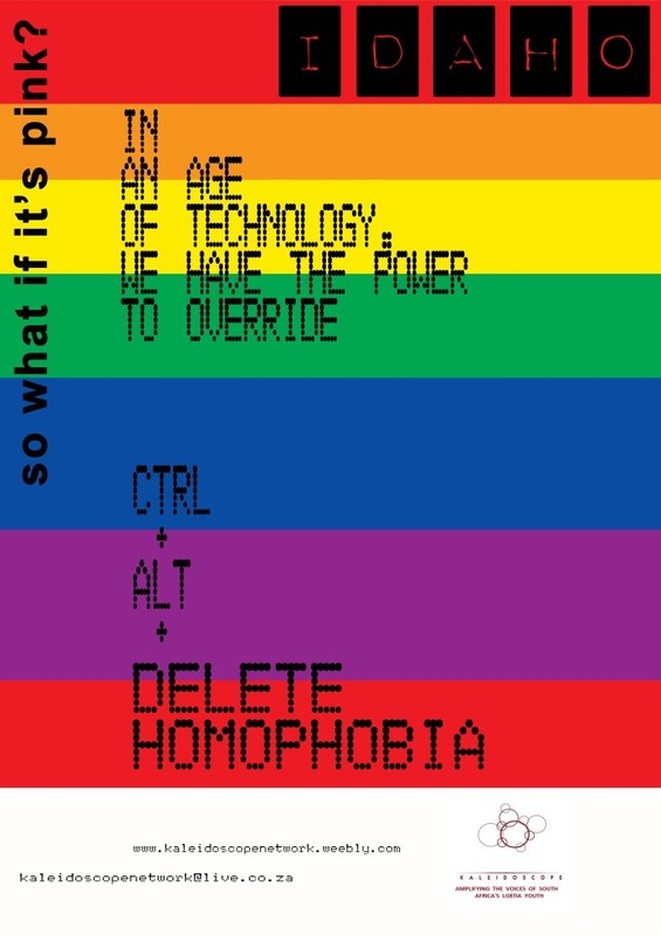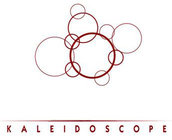Youth Day – June 16 2012
Jan Malatjie
Auxillary PRO
Simon Nkoli, a human rights and gay activist once said “In South Africa I am oppressed because I am black man, and I am oppressed because I am gay. So when I fight for my freedom I must fight against both oppressions.” In the context of the great diversity within LGBTIA youth, this statement still applies well to the multiple struggles encountered.
The Kaleidoscope Youth Network is a national umbrella organization representing 17 LGBTIA (lesbian, gay, bisexual, transgender, intersex, and asexual) students’ societies in universities across the Republic of South Africa. Its membership has grown since its launch in 2007, with many young people taking on the fight to protect their rights as LGBTIA students.
In 1976 the youth of Soweto took to the street to protest against the apartheid government and fight for the human rights for all. Many lost their lives in the battle for the liberation of our country. June 16 commemorates those that dared to stand and fight against an unjust system so that we all could live in a democratic South Africa; we salute them and draw from the courage to continue the fight for liberty for all.
Thirty six years later in 2012, the youth of South Africa are still fighting for justice and to be protected from abuses. Thapelo Makhutle, a 24 year old gay activist from the Northern Cape was murdered because he lived openly as a gay man and Noxolo Nogwaza a lesbian who was killed in May 2011 is yet to receive justice.
Many LGBTIA youth still live in fear in their own communities, in the face of rapes and murders committed against lesbian women, gay men, transgender and intersex individuals. The fight is becoming increasingly intense and urgent. In May 2012, activists across South Africa called for the President to protect the rights of LGBTIA people by rejecting CONTRALESA’s proposal to redraft the Constitution. To remove the Constitutional protection of individuals from discrimination on the basis of sexual orientation would be to betray the incredible efforts of the individuals and organisations that ensured it got there in the first place.
Lethukuthula Blose the Chairperson of Shadows in the Rainbow, at Durban University of Technology in Kwa-Zulu Natal and Thuli Mathabela the Auxiliary National Vice Convener of the Kaleidoscope Youth Network are amongst the LGBTIA young leaders that are advancing the struggle for human rightss.
“June the 16th means knowing that people fought for my rights and us as the youth are able to express who we are. It also means that I have the responsibility to preserve those rights and encourage other members of our youth to know what we stand for; the future of our country and to safeguard the rights that we've inherited,” Thuli Mathabela said.
There remain a lot to be done and and the struggle still continues to realize LGBTIA right in South African and the world. Lethukula Blose said that “we will eventually win the fight for equal rights all, for now the youth needs to affirm their stand whether LGBTIA or not.”
Aluta Continua
Jan Malatjie
Auxillary PRO
Simon Nkoli, a human rights and gay activist once said “In South Africa I am oppressed because I am black man, and I am oppressed because I am gay. So when I fight for my freedom I must fight against both oppressions.” In the context of the great diversity within LGBTIA youth, this statement still applies well to the multiple struggles encountered.
The Kaleidoscope Youth Network is a national umbrella organization representing 17 LGBTIA (lesbian, gay, bisexual, transgender, intersex, and asexual) students’ societies in universities across the Republic of South Africa. Its membership has grown since its launch in 2007, with many young people taking on the fight to protect their rights as LGBTIA students.
In 1976 the youth of Soweto took to the street to protest against the apartheid government and fight for the human rights for all. Many lost their lives in the battle for the liberation of our country. June 16 commemorates those that dared to stand and fight against an unjust system so that we all could live in a democratic South Africa; we salute them and draw from the courage to continue the fight for liberty for all.
Thirty six years later in 2012, the youth of South Africa are still fighting for justice and to be protected from abuses. Thapelo Makhutle, a 24 year old gay activist from the Northern Cape was murdered because he lived openly as a gay man and Noxolo Nogwaza a lesbian who was killed in May 2011 is yet to receive justice.
Many LGBTIA youth still live in fear in their own communities, in the face of rapes and murders committed against lesbian women, gay men, transgender and intersex individuals. The fight is becoming increasingly intense and urgent. In May 2012, activists across South Africa called for the President to protect the rights of LGBTIA people by rejecting CONTRALESA’s proposal to redraft the Constitution. To remove the Constitutional protection of individuals from discrimination on the basis of sexual orientation would be to betray the incredible efforts of the individuals and organisations that ensured it got there in the first place.
Lethukuthula Blose the Chairperson of Shadows in the Rainbow, at Durban University of Technology in Kwa-Zulu Natal and Thuli Mathabela the Auxiliary National Vice Convener of the Kaleidoscope Youth Network are amongst the LGBTIA young leaders that are advancing the struggle for human rightss.
“June the 16th means knowing that people fought for my rights and us as the youth are able to express who we are. It also means that I have the responsibility to preserve those rights and encourage other members of our youth to know what we stand for; the future of our country and to safeguard the rights that we've inherited,” Thuli Mathabela said.
There remain a lot to be done and and the struggle still continues to realize LGBTIA right in South African and the world. Lethukula Blose said that “we will eventually win the fight for equal rights all, for now the youth needs to affirm their stand whether LGBTIA or not.”
Aluta Continua



 RSS Feed
RSS Feed